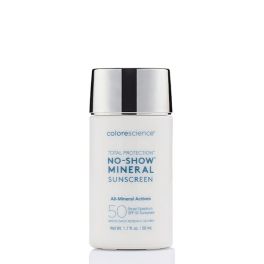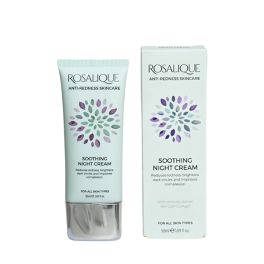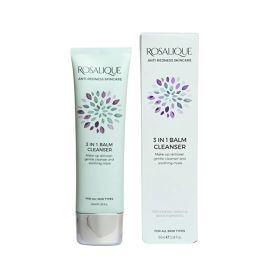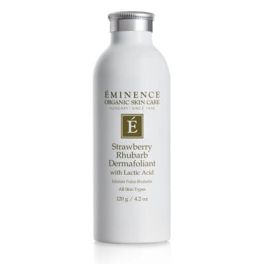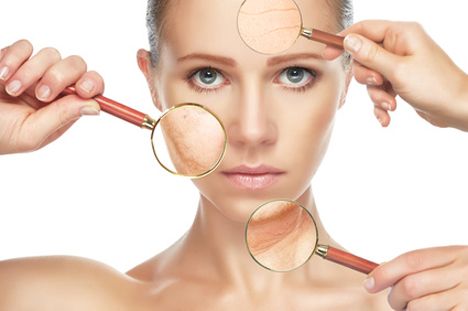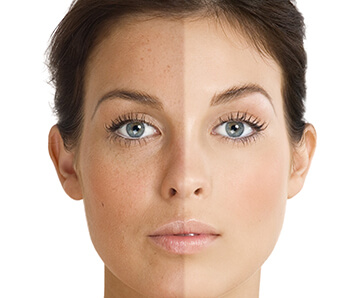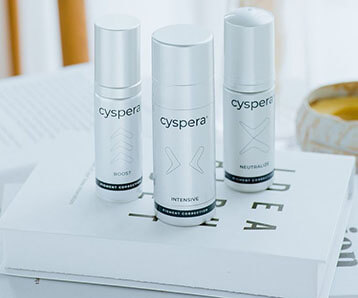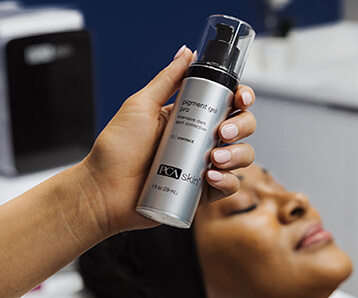Pigmentation Treatments Posted on 25 Jul 2011
Treating Pigmentation
Hyperpigmentation usually presents itself as age spots, uneven colour, freckles and sometimes melasma (mask of pregnancy), due to excess melanin production and deposition in the skin. The main cause is sun damage or photo-ageing but pigmentation can also be aggravated by other factors, including hormones such as during pregnancy or the contraceptive pill, certain medications and also inflammation following trauma or acne.
How much you can reduce the appearance of pigmentation depends on what is causing the problem and also how deep into the skin the pigmentation extends.
Non-invasive topical skincare products to treat pigmentation
Pigmentation Lightening Treatment Products contain lightening agents are a safer approach for brightening the skin and are effective when used consistently in a professional brightening regime.
Topical lightening agents help to reduce pigmentation by inhibiting enzymes that produce melanin (skin pigment). Common lightening agents include kojic acid, azelaic acid, licorice, sabi white, mulberry, skin brightening peptides. These products need to applied for at least 3 months.
Using exfoliants can also help fade pigmentation by speeding up cell turnover and accelerating the natural peeling of pigmented or dead skin cells and stimulating new skin cells growth. Exfoliants such as AHAs and Retinol also have added anti-aging benefits and can bring faster results when used in combination with a lightening treatment.
Microdermabrasion Products work deeper by exfoliating away superficial pigmentation marks and thus stimulating the growth of new skin.
UV exposure from sunlight will invariably worsen any existing pigmentation and promote further pigmentation to arise. UV protection/sunscreen is paramount in the treatment of pigmentation. Apply it daily and all year round, not just in the summer.
Apply Antioxidant Serums once a day after cleansing. Environmental Protection Vitamin C and other antioxidants help to neutralise ageing free radicals. Antioxidants will also help lighten the pigmentation and brighten the over all skin tone.
The best results can be obtained through combining a variety of twice daily skin lightening agents, AHAs and a daily antioxidant, sunscreen & retinol product at night.
Pigmentation is difficult to treat and sometime slow, so stick with your skincare regime and don’t give up too quickly.
Medical treatment for pigmentation
Medical peels can significantly help by causing the layer of skin to separate and peel off. The new regenerated skin underneath is usually smoother and more even in both tone & colour than the old skin. It requires and course of treatments and may cause some discomfort and recovery time and also cost.
Lasers can produce a faster and more effective results in most cases. There are however, more risks with the use of lasers as opposed to lightening agents, and these risks include worsening of the pigmentation, loss of normal skin pigmentation (hypopigmentation) or scarring of the skin (rare). Also, with laser treatment there is usually a period of recovery post-treatment and not to mention the cost.













